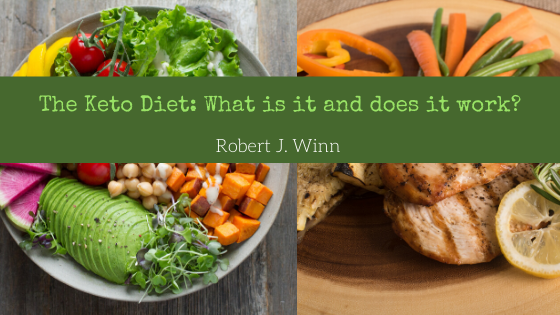The Ketogenic, or Keto, Diet is extremely popular. The origins of this way of eating go back to the low carbohydrate Atkins Diet that has been around for over 40 years. Many people follow this diet for a variety of reported health benefits. Let’s explore the keto diet a little closer and what benefits it may have.
What is the Keto Diet?
The primary intention of the keto diet is to encourage your body to get into a state of ketosis by significantly restricting the intake of carbohydrates and increasing the consumption of healthy fats. Simply put, ketosis is the state in which your body can metabolize stored fat as a primary source of fuel when your glucose levels are depleted.
How to Eat on the Keto Diet
The keto diet requires that you consume a specific ratio of fat to protein to carbohydrate macronutrients daily. The ratio is fat at 70% of your calories, protein at 25%, and carbohydrates at 5%. The proponents of the diet recommend that you consume fresh foods from organic, free-range, and sustainable sources.
Foods to Eat
- Animal proteins: eggs, beef, pork, lamb, poultry, seafood, and bone broth
- Healthy fats: butter, ghee, avocado oil, coconut oil, and olive oil
- Fresh, low-starch fruits and vegetables
- Cream, cheeses, and yogurt
- Moderate amounts of nuts and seeds and soy
Foods to Avoid
- Gluten: wheat, barley, and rye
- Grain flours, pasta, cereal, bread, and rice
- Starchy fruits and vegetables
- Sweeteners: sugar, maple syrup, honey, and agave nectar
- Legumes (beans)
- Processed foods
This is not just a diet. It is also a way of life. The designers of the diet are fairly clear that you need to exercise and practice good sleep habits for the diet to benefit you optimally.
Keto Diet Health Benefits
Restricting carbohydrate intake will enable your body to burn fat faster and more often for energy. This metabolic shift from relying on glucose to utilizing fat can result in a variety of positive health benefits.
Potential Health Benefits
- Weight Loss and building lean muscle mass
- Management of diabetes
- Lowering of LDL cholesterol
- Reduced inflammation
- Improved digestion and reversal of irritable bowel syndrome
- Better skin elasticity and control of acne
Bottom Line
The keto diet promotes increasing your fat intake and reducing carbohydrate consumption to force your body into a state of ketosis. It may seem unusual that a diet high in fat can have potential health benefits. In actuality, your body is utilizing that fat to burn calories and supply you with fuel for energy.
Transitioning to a keto diet can take a little getting used to. Start slowly so that your body can work through the cravings you might have for carbohydrates at first.

